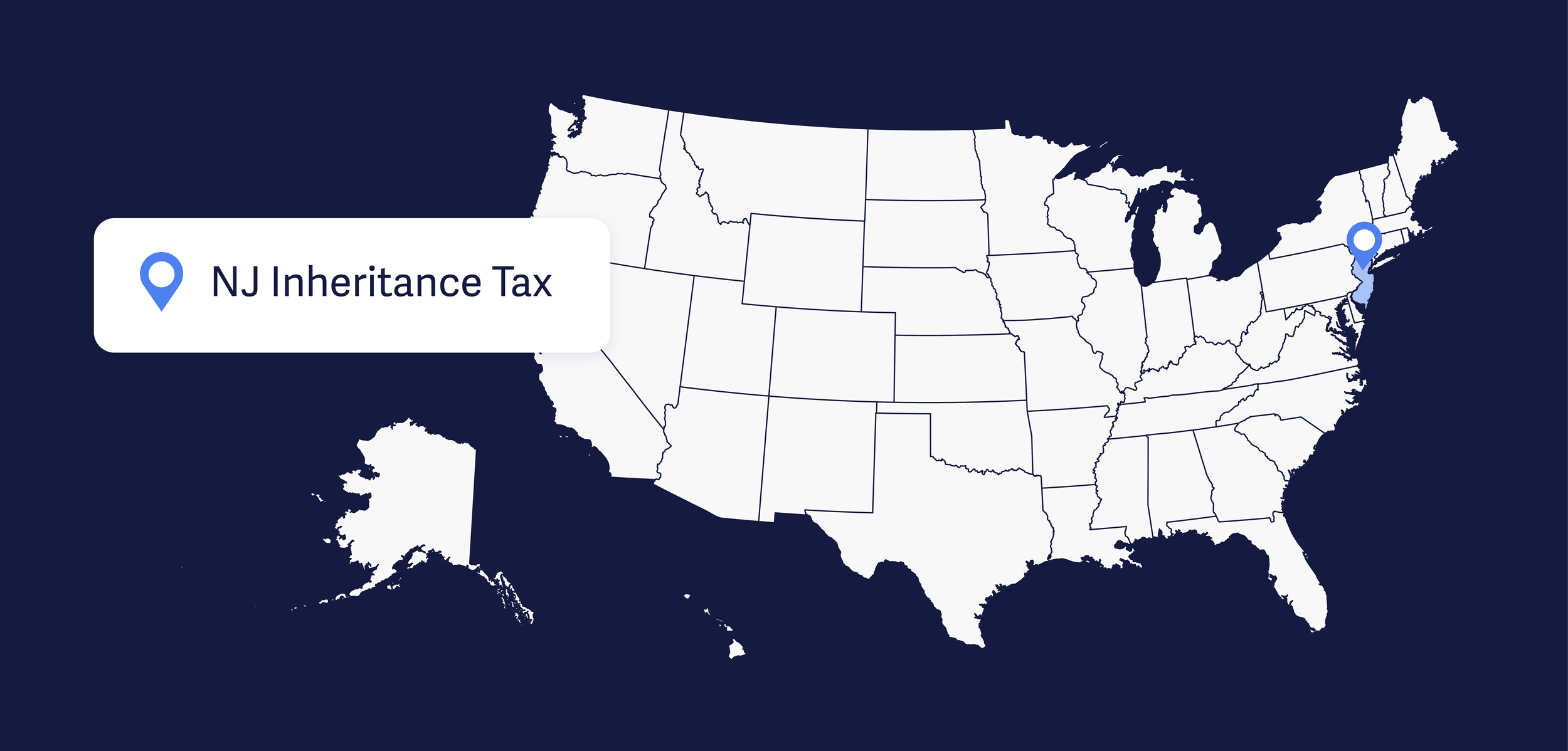What is Probate, and How Does it Work?
While the probate process may seem straightforward, it’s often very complicated, costly, and time-consuming for surviving family members—depending on specific circumstances. This is precisely why it’s important to take proactive steps to structure your estate in a way that streamlines the probate process or even avoids it altogether. This post will help guide you as you look to do just that!
What is probate?
Probate is the legal process used to administer a person’s estate after his or her death: verifying that your will is valid and authentic, paying off any taxes or debts, and ensuring the correct parties receive all property and possessions.
How probate works with a will
Your last will and testament (or testamentary will) is a legal document that ensures an estate is settled per the deceased's wishes, outlining how to distribute assets and possessions following one’s death. Although a will must go through probate, the corresponding process is generally much smoother than not having a will at all.
To probate a will, the executor—the person or organization appointed in the will—typically files a certified copy of the death certificate, the original will, and any other supporting documents with the Surrogate's Court in the county where the deceased lived. A court will first authenticate the will and then authorize the executor to notify beneficiaries and creditors, administering the estate accordingly.
How probate works without a will
If you pass away without a will (dying “intestate”), the court will make decisions on your behalf such as freezing your assets until an executor is appointed or determining how to split assets among family members. While each state has its own intestate laws, assets are often split—half going to the surviving spouse, half split equally among children—which may clash with your own personal desires. To complicate matters even further, dying without a will can also make probate more expensive as loved ones will accrue additional court and attorney fees and thus inherit less than they would have otherwise. If significant assets are involved, probate can drag on for months (or even years!) before money, property, or belongings are distributed to heirs. These reasons alone may encourage you to create a will if you haven’t already!
How to streamline the probate process
Consider a no-contest clause
A good place to start is to add a no-contest clause to your will, sometimes beneficial depending on where you reside (as not all states enforce such clauses) and if you’re wary someone will challenge your will in court. This ultimately helps discourage disgruntled family members from contesting your will, stating that anyone who mounts a legal challenge (and loses) forfeits any potential inheritance. You can also set up a trust in this regard, which typically cannot be contested in court.
Choose the right executor
Another way to streamline probate is to choose a competent executor, ideally a very organized person with solid judgment and financial acumen: important attributes as he or she will assume numerous responsibilities including reviewing and filing paperwork, notifying banks and government agencies of the decedent’s death, gathering an inventory of assets, managing all outstanding bills and debts, and maintaining any property before it’s distributed or sold.
Those with several beneficiaries must remain cognizant that probate delays occur when signed documents are requested from each one (a probate prerequisite), as each must be located and made aware of current circumstances. The more beneficiaries, the more likely at least a few will need prodding to return signed paperwork.
How to avoid the probate process
With proper planning, you can arrange your estate to avoid the probate process for most of your assets. Note that depending on your state, a beneficiary (or beneficiaries) may qualify for a simplified probate process or even have the ability to skip probate altogether. Your estate must be classified as a “small estate” in order to do so, meaning its total value falls below a specific dollar threshold and court supervision is thus not required for settlement.
In New Jersey, for example, the current threshold in this regard is $50,000 if you’re the surviving spouse, civil union partner, or registered domestic partner. The threshold is $20,000 for estate heirs under New Jersey’s intestacy laws in the absence of a surviving spouse or domestic partner.
In New York, the threshold is also $50,000; but you may qualify otherwise if your estate is worth more given exempt property exclusions including one vehicle valued at up to $25,000 and up to $20,000 worth of furniture and household items.
Revocable living trusts
A trust—another method used to transfer assets after you pass away—requires you to appoint a trustee to manage and distribute your assets to beneficiaries. A living trust is created while the trustor is still alive and can be changed during his or her lifetime given continued ownership of property or other assets. This is often a very popular option since, unlike a will, it does not require your assets to go through probate: saving your heirs both time and money. Click here to read about the differences between wills and trusts.
Designated beneficiaries
If you have a retirement account such as an IRA, annuity, 401(k), or 403(b), you may have the ability to bypass probate for these assets if you’ve named beneficiaries (with death benefits from life insurance policies likewise automatically passing to them). Keep in mind that if you live in a community property state—Arizona, California, Idaho, Louisiana, Nevada, New Mexico, Texas, Washington, or Wisconsin—spouses are entitled to half of any retirement assets added during the marriage. If you name other individuals (in addition to or instead of your spouse) as beneficiaries in this case, your accounts may go through probate.
Proper asset titles
Joint asset ownership with a spouse, children, or someone else is another probate-avoidance strategy whereby the ownership structure is established per joint tenancy with the right of survivorship (JTWROS) or tenancy by the entirety (TBE). In a JTWROS arrangement, all account holders have equal rights to assets (e.g., bank accounts or real estate); should one account holder pass away, his/her interest automatically transfers to the surviving co-owner. This helps avoid probate and prevents the deceased owner from including his/her share in a will or bequeathing it to anyone other than the co-owner. TBE, on the other hand, is only established by married couples and permitted in 25 states and Washington D.C. (each with its own specific laws). This arrangement also creates a right of survivorship (if one spouse dies, the surviving spouse automatically receives full ownership of the asset) and often involves real estate.
In sum: final thoughts on probate avoidance
One of the easiest and most effective ways to avoid probate is to keep beneficiaries updated on all life insurance policies and retirement accounts, also ensuring all remaining assets are titled correctly as these designations typically take precedence over a will. Including a will can help speed up the probate process for personal belongings passed down to heirs, and while a trust is perhaps not suitable for everyone, it’s worth considering for several reasons—such as saving your heirs the hassle of probate.
Questions about estate planning? Schedule a FREE discovery call with one of our CFP® professionals to get your questions answered.
People also ask…
-
Probate costs range from 3% to 7% pf your estate’s value. Actual costs depend on various factors such as your state, the size and complexity of your estate, and if your estate plan is contested. Attorney fees (if you need to hire one) are often the biggest driver here; attorneys may charge a flat fee, hourly rate, or a percentage of your assets. Several other expenses are in play as well such as court fees that can range from a few hundred to over a thousand dollars depending on the complexity of the estate and the number of forms to be completed. Finally, costs for appraisals (to determine the fair market value of estate assets) and publishing death notices also feed into expenses.
-
Items with a named beneficiary can in fact do this. These include life insurance policies, anything placed in a living trust, property titled jointly with survivor’s rights, and POD (payable on death) and TOD (transfer on death) assets that include items such as vehicles, bank accounts, stocks, and real estate.
-
Unfortunately, it’s impossible to assign any one specific timeframe to the duration of the probate process as it can vary significantly based on several factors (e.g., the complexity of the estate, availability of a valid will, the state in which the deceased lived, the court's backlog, and any disputes among beneficiaries). For estates that aren’t complex in New Jersey, for example, the probate process can often wrap up in just a few weeks’ time.
———
Vision Retirement is an independent registered advisor (RIA) firm headquartered in Ridgewood, New Jersey. Launched in 2006 to better help people prepare for retirement and feel more confident in their decision-making, our firm’s mission is to provide clients with clarity and guidance so they can enjoy a comfortable and stress-free retirement. Schedule a no-obligation consultation with one of our financial advisors today!
Disclosures:
This document is a summary only and is not intended to provide specific advice or recommendations for any individual or business.







